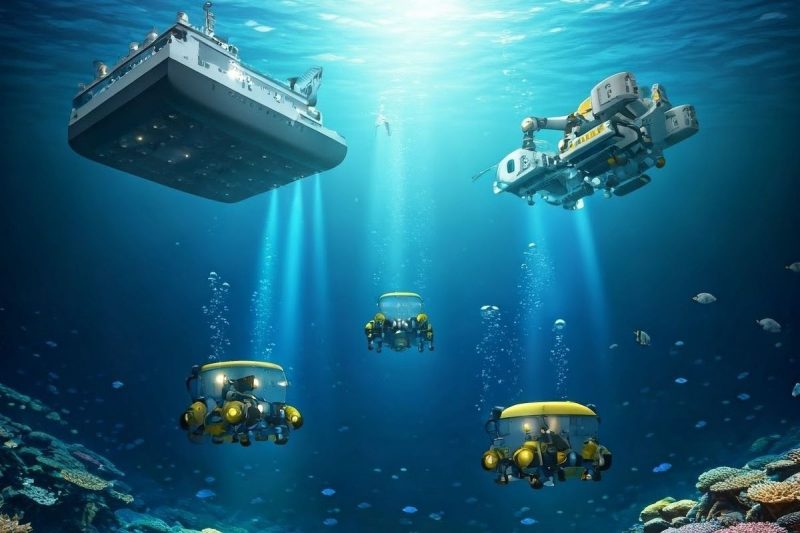Norway’s Decision to Suspend Deep-Sea Mining Plans Raises Global Environmental Awareness
The recent decision by Norway to suspend its plans for deep-sea mining has sent ripples across the environmental advocacy and resource extraction sectors. The move comes amidst growing concerns about the potential ecological impacts of mining activities taking place in sensitive marine ecosystems.
Deep-sea mining is a nascent industry that aims to extract valuable minerals from the ocean floor. Proponents argue that this form of mining can help meet the growing demand for metals and minerals essential for modern technologies, such as smartphones, electric vehicles, and renewable energy infrastructure. However, critics warn that deep-sea mining poses significant risks to marine biodiversity and could have far-reaching environmental consequences.
One of the primary concerns surrounding deep-sea mining is the potential destruction of delicate deep-sea habitats, such as hydrothermal vents and cold-water coral reefs. These unique ecosystems provide crucial services, including nutrient cycling, carbon sequestration, and habitat for a diverse array of marine species. Disturbing these habitats through mining activities could have severe, long-lasting effects on marine biodiversity and ecosystem functioning.
Furthermore, deep-sea mining operations have the potential to release sediments, heavy metals, and other contaminants into the water column, leading to pollution and ecosystem disruption. The use of heavy machinery and equipment in deep-sea mining activities can also generate noise and vibrations that may disturb marine wildlife, including whales, dolphins, and other sensitive species.
In light of these concerns, Norway’s decision to suspend its deep-sea mining plans is a significant step towards prioritizing environmental protection over resource extraction. By taking a precautionary approach and pausing deep-sea mining activities, Norway is demonstrating a commitment to sustainable and responsible natural resource management.
The Norwegian government’s decision has also sparked discussions and debates about the future of deep-sea mining on a global scale. Countries, companies, and environmental organizations are now reevaluating their positions on deep-sea mining and considering the potential risks and benefits associated with this industry.
In conclusion, Norway’s suspension of deep-sea mining plans serves as a wake-up call for the international community to reassess the environmental impacts of resource extraction activities in sensitive marine ecosystems. It highlights the importance of adopting a precautionary approach to prevent irreversible harm to marine biodiversity and ecosystem health. Moving forward, it is essential for policymakers, industry stakeholders, and environmental advocates to engage in open dialogue and collaboration to ensure that any future deep-sea mining activities are conducted responsibly and sustainably, with due consideration for environmental protection and conservation.
